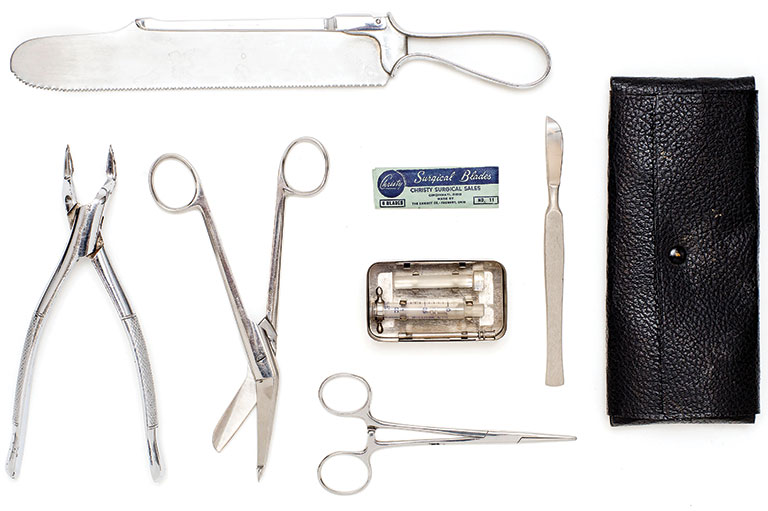In the dynamic world of surgical procedures, controlling bleeding is one of the most critical steps in ensuring patient safety and procedural success. To achieve this, surgeons rely on a wide range of tools, and among them, hemostatic forceps stand out as indispensable. These specialized instruments are used to clamp blood vessels and control hemorrhage, forming the cornerstone of both minor and major surgeries.
In this article, we will explore the types, functions, and applications of hemostatic forceps, along with insights into the advantages of sourcing them from reputable Surgical Instruments Manufacturers In Pakistan.
What Are Hemostatic Forceps?
Hemostatic forceps, also commonly referred to as hemostats or artery forceps, are surgical clamps designed to grasp and hold blood vessels or tissues to prevent bleeding. They are primarily used during surgical procedures to achieve hemostasis, which is the process of stopping blood flow.
Typically constructed from high-quality stainless steel, hemostatic forceps feature:
- A locking ratchet mechanism for maintaining constant pressure
- Serrated jaws for firm gripping
- A scissor-like handle for ease of use
- Straight or curved tips for accessing different anatomical regions
Because of their design and versatility, hemostatic forceps are used in virtually every surgical discipline—from general surgery to orthopedics, cardiovascular operations, and dental procedures.
Common Types of Hemostatic Forceps
Several variations of hemostatic forceps exist, each tailored to specific surgical applications. Understanding these variations is key to choosing the right instrument for the task:
1. Mosquito Forceps
Small and delicate, these are used for clamping tiny blood vessels in surgeries involving fine tissue work, such as in ophthalmology or pediatric surgery.
2. Kelly Forceps
A more robust version suitable for medium-sized vessels. These are available in both straight and curved models.
3. Crile Forceps
Similar to Kelly forceps but with serrations extending the full length of the jaw. These provide a more secure grip on slippery tissues.
4. Rochester-Pean and Rochester-Carmalt Forceps
Used in large animal surgeries or major human surgeries for clamping bigger vessels or tissue masses.
Each type of hemostatic forceps is engineered for specific uses, making it essential for surgical teams to be well-versed in their appropriate application.
Key Functions and Uses of Hemostatic Forceps
Understanding the practical applications of hemostats provides insight into why they are a mainstay in the surgical toolkit. The primary hemostatic forceps uses include:
1. Clamping Blood Vessels
The most common use is to temporarily stop blood flow during surgical incisions or trauma by clamping blood vessels before ligation.
2. Tissue Manipulation
Hemostats can be used to hold tissues in place while other instruments perform dissections or suturing.
3. Suture Assistance
Surgeons often use hemostats to tie off sutures or hold needles in place during stitching.
4. Removal of Foreign Bodies
In emergency or outpatient settings, they may be used to extract splinters, glass shards, or other foreign objects.
5. Emergency Bleeding Control
In trauma cases or field medicine, hemostats are often the first tool used to control life-threatening bleeding until further intervention is possible.
This multifunctional role makes hemostatic forceps a crucial tool for both planned surgical procedures and urgent medical care.
Why Quality Matters: The Role of Manufacturers
Surgical outcomes depend heavily on the quality and reliability of the instruments used. A faulty or poorly designed hemostat can fail to control bleeding, leading to increased risk, prolonged operation time, or complications. This is why healthcare facilities prioritize sourcing high-quality instruments from trusted suppliers.
Increasingly, medical professionals around the world are turning to Surgical Instruments Manufacturers In Pakistan for their instrument needs—and for good reason.
Learn More about sportswear manufacturers in pakistan
Why Choose Surgical Instruments Manufacturers in Pakistan?
Pakistan, especially the city of Sialkot, has emerged as a global leader in the surgical instruments manufacturing industry. Here are some compelling reasons why these manufacturers are trusted globally:
1. International Certifications
Many manufacturers in Pakistan are ISO 13485 certified and comply with CE and FDA standards, ensuring their products meet global safety and quality benchmarks.
2. Skilled Craftsmanship
Generations of experience in metalworking and surgical precision have made Pakistani manufacturers highly proficient in crafting detailed and durable instruments.
3. Cost-Effectiveness
While maintaining high-quality standards, Pakistani suppliers offer competitive pricing, making them a smart choice for hospitals, clinics, and distributors looking to optimize budgets.
4. Customization and OEM Services
Manufacturers offer custom solutions including private labeling, OEM services, and design modifications tailored to unique client requirements.
When sourcing hemostatic forceps and other critical surgical tools, choosing the right manufacturing partner can make a significant difference in safety, efficiency, and cost-effectiveness.
Maintenance and Care of Hemostatic Forceps
To maintain the effectiveness and longevity of hemostatic forceps, proper care and handling are essential:
- Thorough Cleaning After Each Use: Prevents buildup of biological material and corrosion.
- Appropriate Sterilization: Use autoclave sterilization as per manufacturer’s guidelines.
- Regular Inspection: Check for wear, rust, or mechanical failure to avoid intraoperative complications.
- Safe Storage: Store in dry, organized trays to prevent damage to the tips or locking mechanism.
A small investment in proper maintenance yields long-term benefits in reliability and patient safety.
Conclusion
Hemostatic forceps are one of the most essential and versatile instruments in the surgical arsenal. Their ability to control bleeding, assist in suturing, and hold tissue makes them indispensable across medical specialties. As surgical technology and techniques evolve, the need for high-quality, precision-engineered instruments remains constant.
Partnering with leading Surgical Instruments Manufacturers In Pakistan ensures access to world-class tools that meet the rigorous demands of modern healthcare—while also being cost-effective and customizable.
Whether you’re equipping a new operating room, upgrading surgical trays, or sourcing for distribution, understanding the uses and sourcing options for hemostatic forceps helps you make informed, strategic decisions that enhance both performance and patient outcomes.




